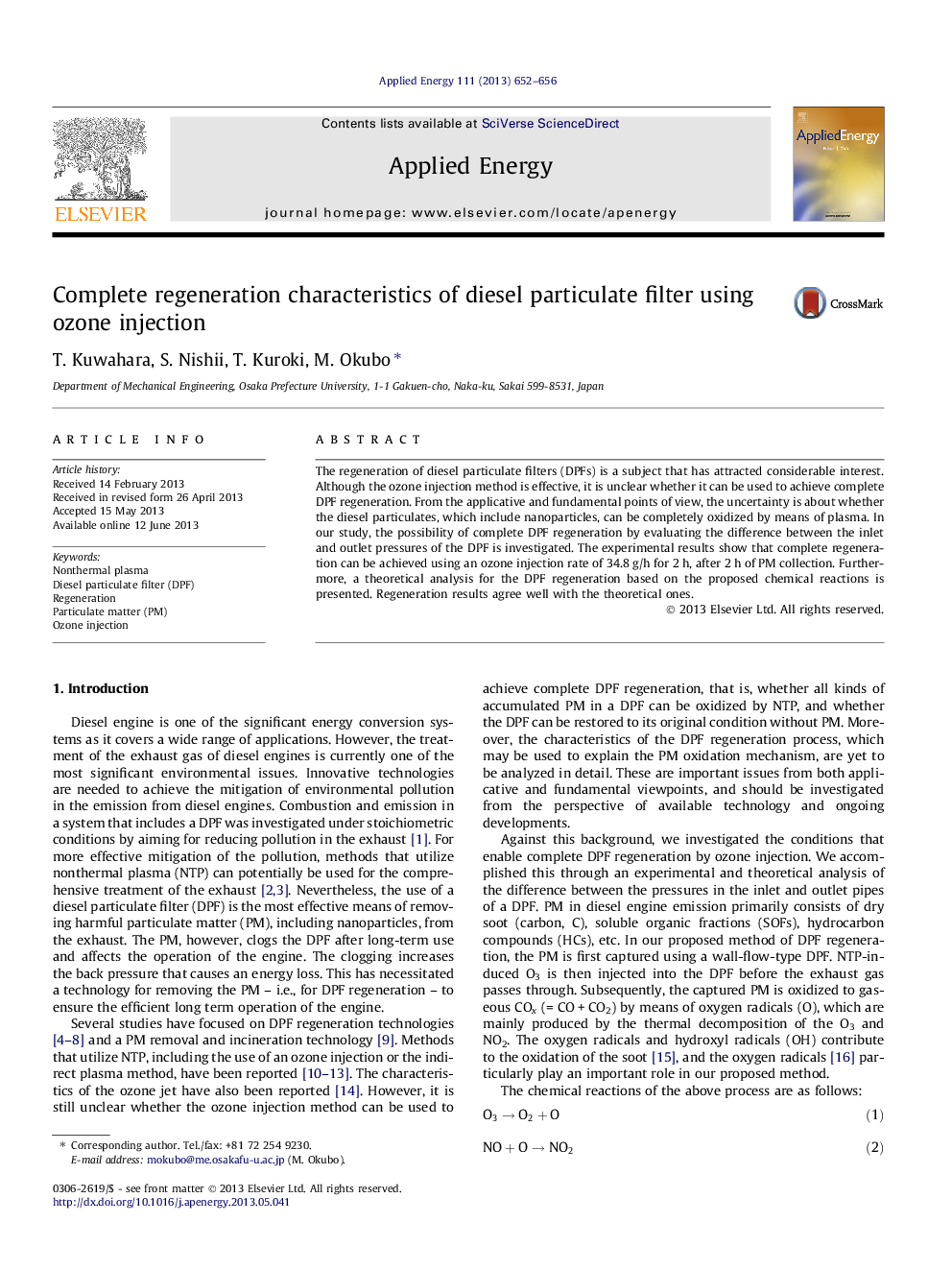| Article ID | Journal | Published Year | Pages | File Type |
|---|---|---|---|---|
| 6692463 | Applied Energy | 2013 | 5 Pages |
Abstract
The regeneration of diesel particulate filters (DPFs) is a subject that has attracted considerable interest. Although the ozone injection method is effective, it is unclear whether it can be used to achieve complete DPF regeneration. From the applicative and fundamental points of view, the uncertainty is about whether the diesel particulates, which include nanoparticles, can be completely oxidized by means of plasma. In our study, the possibility of complete DPF regeneration by evaluating the difference between the inlet and outlet pressures of the DPF is investigated. The experimental results show that complete regeneration can be achieved using an ozone injection rate of 34.8Â g/h for 2Â h, after 2Â h of PM collection. Furthermore, a theoretical analysis for the DPF regeneration based on the proposed chemical reactions is presented. Regeneration results agree well with the theoretical ones.
Related Topics
Physical Sciences and Engineering
Energy
Energy Engineering and Power Technology
Authors
T. Kuwahara, S. Nishii, T. Kuroki, M. Okubo,
